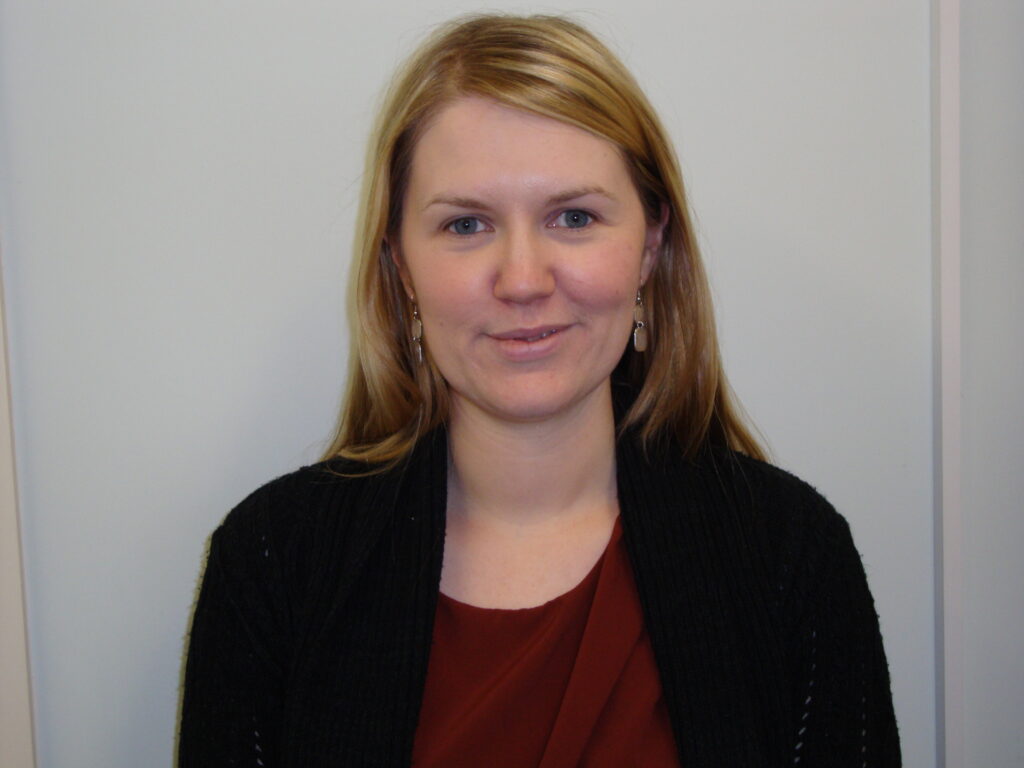
Posted 29th May 2019
Eleri Lloyd of Mantell Gwynedd has not only become an Accredited Practitioner, but earned her Assured Report without needing an amendment period. This is a first for the Social Value International network, so a big congratulations is in order for Eleri!
We spoke to Eleri about her journey to become an Accredited Practitioner, and some tips on how to best prepare your reports for assurance.
Why did you apply to become an Accredited Practitioner?
I work for Mantell Gwynedd, a local County Voluntary Council, and as the Social Value Manager for the organisation, they were very supportive and encouraging me to apply for Accredited Practitioner status, but I needed to have a good case study to work with. Change Step is a project run by CAIS, a social enterprise who provide peer mentor support for veterans across Wales. This was a project in partnership with Veterans’ NHS Wales that allowed peer mentors to work closely with the Veteran Therapists across five Health Boards. As well as assisting with their therapy by focusing on key areas that needed attention, the peer mentor could spend time looking at their social and practical needs by using a person-centred approach.
Having worked with many organisations to measure and understand their impact; offering social value training and coordinating the North Wales Social Value network, on a personal level I needed encouragement that I was embedding the social value principles throughout my work. Also, I believe that becoming an Accredited Practitioner gives the client the reassurance and confidence in the results and as a business that’s invaluable.
What were the challenges you faced in the process to become an Accredited Practitioner/the creation of your report?
This report was an evaluation of a partnership between a third sector organisation and a statutory service working for five different health boards in Wales. I needed to ensure that I engaged with enough veterans from each area and representative of different characteristics to be confident in the results. This was challenging as I needed to seek the right approval from all health boards to engage with the clients, as well as gaining an understanding about the differences geographically in terms of needs and challenges.
What has been the most beneficial about your experience?
The whole process was beneficial. With some sections, it just provided me with the confidence that I had been doing things the right way, but also working against the assurance criteria gave me a greater focus and understanding.
The support and communication with both the Assurance Manager and the assessor were also hugely beneficial as they were so supportive and affirming – they had clearly understood the report.
You are the first person to achieve an Assured Report without an amendment period, can you give 3 top tips?
- If we engage with enough stakeholders then everything else will fall into place. I engaged with a good sample of veterans, family members, staff and health professionals until I was clear in my mind what had changed, but also if there were no changes or unintended outcomes. For this to be done effectively– we need to appreciate that no one is the same and allow each person the space to tell you their story in a way or language that they’re comfortable with. Whether a service has helped or not, usually every person appreciates having the time to tell their story and to be included in decision making.
- Check, check, and check the report – keep going through the criteria in case you’ve missed anything, especially checking any assumptions that you may have made in case you’ve over claimed.
- Don’t over segment your stakeholders. For this evaluation, I considered age, length of service in the military, geographical area and whether they had family support. Whilst reviewing the data, we only looked at veterans with family support and veterans without family support. This gave us some insight into some differences in the outcomes, amount of change and attribution rates. Moving forward, the organisation can manage this further by looking at other characteristics which is more valuable for them on an internal level rather than overcomplicating the report.
Karen Carrick, the assessor of Eleri’s report said: ‘Eleri’s report was a pleasure to assess. Although all reports are unique and there is no set style this one was very well presented and easy to understand. Eleri had understood the principles of social value and they were embedded throughout the analysis. As a consequence, she was able to meet the assessment criteria. No matter how many reports you have written its is always helpful to get feedback from a critical friend and to be able to offer the assurance that a report has been peer reviewed and the network can provide this.’
Catherine Manning, Assurance Manager for SVI: ‘We are delighted to welcome Eleri to the community of Accredited Practitioners of Social Value International. Eleri has demonstrated an in-depth knowledge of the Social Value Principles, and the principles-based approach to accounting for value through her SROI practice. We, in the Social Value International network, aim to develop world-class standards of practice in impact management and social value accounting. Focusing on the application of the principles throughout all practice in accounting for value makes meeting the criteria for becoming an Accredited Practitioner achievable and the process a beneficial external verification of the principles in practice. For all parties involved the assurance process offers a learning experience as the practice continues to be developed throughout the international network. We look forward to Eleri’s continued contributions to the network and community of practitioners.’
Learn more about Mantell Gwynedd here.
Find out how to become an Accredited Practitioner here.
Learn more about Report Assurance here.
